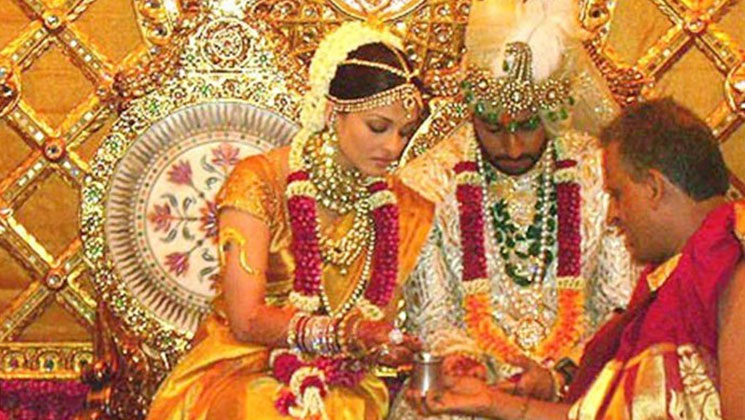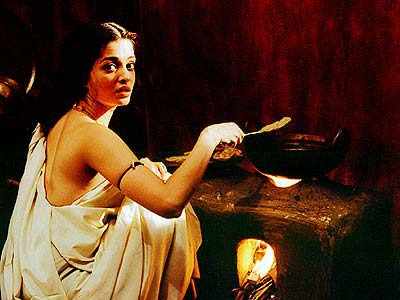| Author | Rabindranath Tagore |
|---|---|
| Translator | |
| Country | India |
| Language | Bengali |
| Genre | Novel |
| Published |
|
| 1959 | |
| Media type |
Chokher Bali (চোখের বালি) is a 1903 Bengali novel by Rabindranath Tagore that depicts the life of the central character, Binodini, and her relationships with three individuals. It explores the extramarital affair between Binodini, a young widow, and Mahendra, one of the three other main characters, the complicated friendship with Asha, his girl-wife, and her mutually conflicting feelings with Behari, Mahendra's adopted brother. The content also highlighted issues of women literacy, child marriage, patriarchy within the family and the fates of three widows[1]
Title[edit]
“Chokher Bali” is a picture that goes the distance and repays patience, so long as early problems of clarity can be fixed. For the record, both Sen and Hindi-speaking Rai have been re-voiced.


- Log in or sign up to comment on this video. Create Account Sign In.
- Watch Chokher Bali 2003clip3 - dm51e on Dailymotion. Chokher Bali (2003) Part - 01 চোখের বালি (পর্ব - ০১) ( 360 X 848 ).
The title of the book can be translated as 'a grain of sand', a 'constant irritant to the eye', or an 'eyesore'. 'Eyesore' was used as the title for its first English translation by Surendranath Tagore published in 1914. Tagore had used a working title Binodini before its publication.[2]
Writing and publication history[edit]
Tagore prepared himself for writing the novel by writing a spree of short stories and it was his first serious effort at a novel.[3] He began working on the novel in 1898 or 1899, and a draft version was completed in 1901.[2]
It was first serialized from 1902 to 1903 in the periodical Bangadarshan, then published as a full book in 1903. Some passages were deleted in the initial serialization and publication, but partly restored in the anthology Rabindra Rachanabali published in 1941, with more restored in an independent edition in 1947.[2]
Translation and adaptations[edit]
The first translation of Chokher Bali was by Surendranath Tagore which appeared in The Modern Review in 1914.[2] It was then translated into English by Krishna Kripalani, and published under the title of Binodini in 1959 by the Sahitya Akademi. It has also been translated into other non-Indian languages including Russian (1959) and Chinese (1961); and into most of the Indian languages including Hindi, Gujarati, Kannada, Malayalam, Marathi, Punjabi, Sindhi, Tamil, Telugu, Assamese (translated by Dr. Mahendra Bora, published by Sahitya Akademi in 1968) and Urdu. A transliteration in Devanagari script, with footnotes in Hindi, was also published by the Sahitya Akademi in 1961.[4]
Chokher Bali has been adapted a number of times in film, television and theatre. A stage adaptation was first performed in 1904,[2] and other versions were produced on screen and television, for example, Chokher Bali by Rituparno Ghosh in 2003, and in the television series Stories by Rabindranath Tagore in 2015. The Indian Bengali-language television serial Chokher Bali, which aired on Zee Bangla from 2015–16, was adapted from the novel.
References[edit]

| Bengali Wikisource has original text related to this article: |
- ^Kemwal, Ashmita. 'Portrayal of Women Characters in Chokher Bali and Chaturanga'.Cite journal requires
|journal=(help) - ^ abcdeRabindranath Tagore, Radha Chakravarty. 'Introduction'. Chokher Bali. Random House India. ISBN9788184003635.
- ^Roy, Nilanjana S. (28 October 2003). 'Chokher Bali: A reader's progress' – via Business Standard.
- ^Indra Nath Chaudhuri (2009). Encyclopaedia of Indian Literature: A-CYC. I (2nd ed.). Sahitya Akademi. p. 1043. ISBN978-81-260-2384-4.
| Chokher Bali চোখের বালি | |
|---|---|
| Directed by | Rituparno Ghosh |
| Produced by | Shrikant Mohta Mahendra Soni |
| Written by | Rabindranath Tagore |
| Based on | Chokher Bali by Rabindranath Tagore |
| Starring | Aishwarya Rai Raima Sen Prosenjit Chatterjee Tota Roy Chowdhury Lily Chakravarty |
| Music by | Debojyoti Mishra |
| Cinematography | Avik Mukhopadhyay |
| |
| 143 minutes | |
| Country | India |
| Language | Bengali |
| Budget | ₹25 million[1] |
Chokher Bali (Bengali: চোখের বালি) (lit. sand in the eye, fig. constant irritant) is a 2003 Indian Bengali languagedrama film based on the 1903 novel Chokher Bali by Rabindranath Tagore. It was directed by Rituparno Ghosh in 2003 and stars Aishwarya Rai as Binodini and Raima Sen as Ashalata. Ashalata and Binodini refer to each other as Chokher Bali. The other major characters are played by Prosenjit Chatterjee as Mahendra, Lily Chakravarty as Rajlakshmi, the mother of Mahendra, Tota Roy Chowdhury as Behari, Rajlakshmi's adopted son and Swastika Mukherjee in a cameo role. The film was later dubbed into Hindi and was released internationally in that language.
Upon release, Chokher Bali met with critical review and positive box office reception.[2][3][4]
Chokher Bali won the National Film Award for Best Feature Film in Bengali, National film award for best costume design and National film award for best art direction.It was nominated for the Golden Leopard (Best Film) award at the Locarno International Film Festival in 2003.[5] The film screened at the 34th International Film Festival of India on 19 October.[6] It was the Official Selection at the Chicago International Film Festival in 2003 and was showcased in over 25 international festivals including the Toronto International Film Festival,[7] London Film Festival, Palm Springs, Karlovy Vary and Washington DC International Film Festival besides winning the Apsara Film Producers' Award for the Best Regional Film 2004. Aishwarya Rai had won the Best Actress award at the Anandalok Awards 2003.
Plot[edit]
Binodini is a young girl who is left to her own devices when her sickly husband dies soon after their marriage. She returns to her village and lives there for a couple of months until she sees one of her aunts passing by. Binodini hails the woman and her two sons agree that it would be best if Binodini came to live with the woman and her son, Mahendra. But that son, Mahendra, was one of the first to see Binodini's photo when she was proposed as a prospective wife for him, yet refused her on account of his being 'unready for marriage.' When Binodini arrives with her aunt, Mahendra and his new bride are constantly sneaking off to be alone together. This infatuation does not last long, however, and Mahendra soon begins to see that Binodini is more his type. Mahendra and Binodini, start an affair, and this is soon revealed to Ashalata, who, unaware of her pregnancy, leaves for Kashi. Binodini, after realising that Mahendra is self-obsessed, leaves Mahendra's house. She pleads with Behari to marry her, but Behari, true to his values, rejects her offer. Binodini leaves the town for her village. She writes a letter to Behari that she'll be waiting for him in Kashi. As she is leaving for Kashi, Mahendra comes to mend their relations, which she refuses. Instead she makes him promise to take her to Behari. At Kashi, Binodini meets Behari who, after some incidents, agrees to marry her. On the day of marriage Binodini vanishes, leaving a letter for Asha. The story details the lives of these three and Mahendra's best friend as they deal with issues such as distrust, adultery, lies, and falling-out.[citation needed]
Music[edit]
The film's background score is by Debojyoti Mishra and, notably, it contains no playback singing. Sreela Majumdar dubbed for Aishwarya Rai and Sudipta Chakraborty dubbed for Raima Sen.
Culture[edit]
In olden days in Bengal, women and girls who were best friends would often set a common nickname for themselves and address each other by that name. In this story, two friends Binodini and Ashalata call each other 'Chokher Bali.'
Cast[edit]

- Aishwarya Rai as Binodini (Voice dubbed by Sreela Majumdar)
- Prosenjit Chatterjee as Mahendra
- Raima Sen as Ashalata (Voice dubbed by Sudipta Chakraborty)
- Lily Chakravarty as Rajlakshmi, Mahendra's mother
- Tota Roy Chowdhury as Behari
- Shuchita Roychowdhury as Annapurna, Ashalata's maternal aunt
- Mousumi Saha as Swarna
- Tina Dutta as Manorama
- Ratna Ghoshal the Woman accompanying the English missionary
- Swastika Mukherjee as a young Courtesan
- Anindya Chatterjee and Upal Sengupta occur as the students
- Sudeshna Roy as Kamal
Critical reception[edit]
Aishwarya has given one of her finest performances and one of the best in cinema.[peacock term][8][9][10][11]
Ekanshu Khera of Planet Bollywood gave the film an 8/10. He found the cinematography to be beautiful and was pleased that the singing was not lip synched. However, he said that the 'dubbing leaves much to be desired' and would have preferred a different director dub it in Hindi. He also noted that the film appeals 'to a niche audience due to its periodic settings and ideologies.'[12] Margaret Pomeranz of ABC Australia gave it 3 out of 5 stars, saying that 'the insight it gives into Indian culture and customs, is interesting and that tends to overcome the slight impatience with the overload of emotions.' David Stratton, also of ABC, gave the film 3.5 out of 5 stars, commenting on how the film version was edited 40 minutes shorter but that it was beautifully acted and fascinating.[13]
Box office[edit]
The film was declared a hit at the box office.[clarification needed][14]
Other titles[edit]
- Choker Bali: A Passion Play (International: English title)
- Sand in the Eye (India: English title)
- Binodini (India: English title)
Chokher Bali Movie Youtube
References[edit]
- ^Ghosh, Tanmoy (2003). 'Chokher Bali'. Filmfare. Archived from the original on 4 December 2003. Retrieved 12 May 2021.
- ^'Alluring Ash'. The Hindu. Chennai, India. 13 November 2003. Archived from the original on 28 November 2003.
- ^'| Bollywood News | Celebrity News'. BollywoodHungama.com. Retrieved 8 July 2012.
- ^'Bengali films zoom in on profits'. Rediff.com. 10 January 2004. Retrieved 8 July 2012.
- ^'Archived copy'. Archived from the original on 27 February 2007. Retrieved 15 March 2007.CS1 maint: archived copy as title (link)
- ^'Why Ash loves Binodini'. Rediff. 20 October 2003. Retrieved 20 October 2003.
- ^'The Toronto Film Festival'. Time. Archived from the original on 17 May 2007.
- ^'Ash will be remembered in Chokher Bali'. Rediff. 5 May 2003. Retrieved 5 May 2003.
- ^'Aishwarya's screen presence and passion play'. Rediff.com. Retrieved 7 October 2003.
- ^'Chokher Bali will widen my horizon'. The Times of India. Archived from the original on 5 April 2012. Retrieved 6 June 2003.
- ^'A director's film'. The Hindu. Archived from the original on 30 November 2006. Retrieved 16 November 2003.
- ^'Archived copy'. Archived from the original on 19 January 2016. Retrieved 25 March 2011.CS1 maint: archived copy as title (link)
- ^https://web.archive.org/web/20150113041857/http://www.abc.net.au/atthemovies/txt/s1392583.htm
- ^''Chokher Bali' is a hit | Chokher Bali (2003) | Latest Movie News'. Bollywood Hungama. 11 October 2003. Retrieved 8 July 2012.
Chokher Bali Movie Download
External links[edit]
- Chokher Bali at IMDb